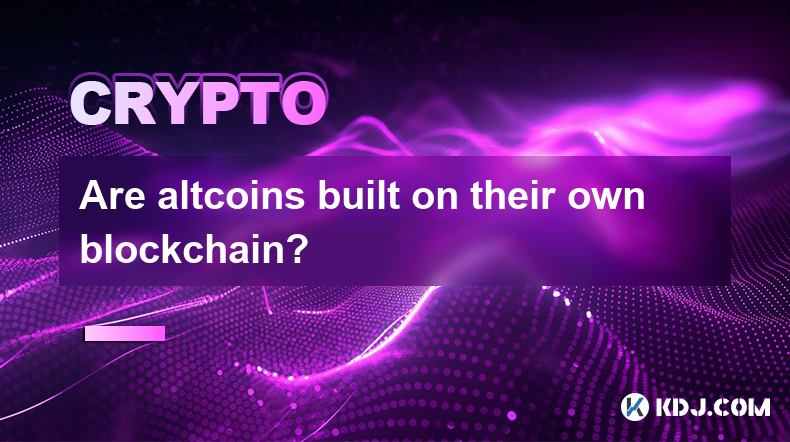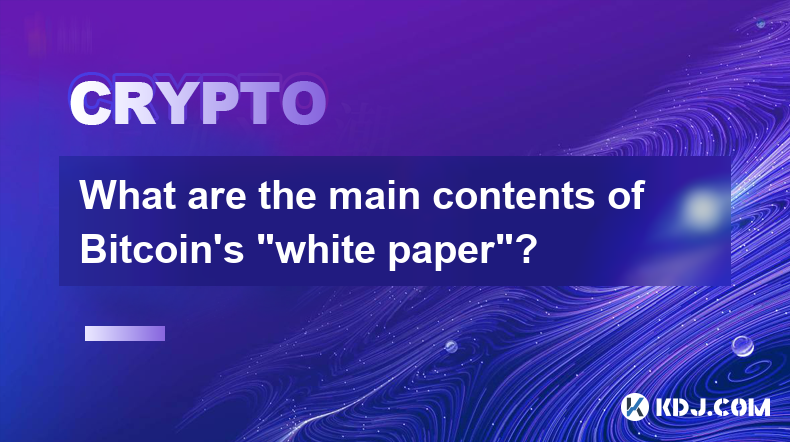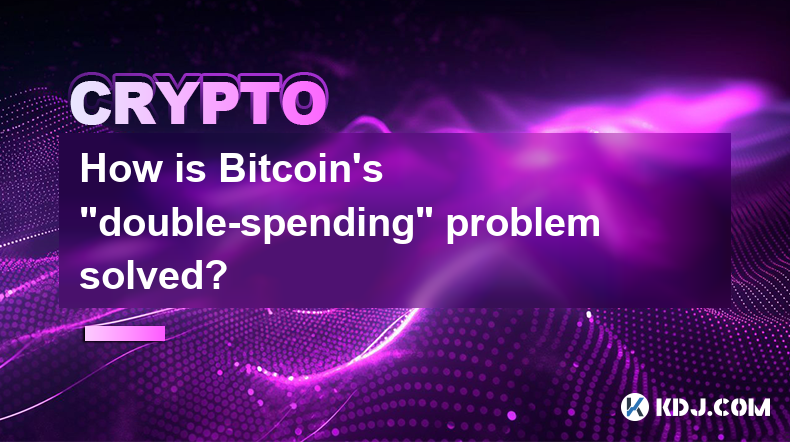-
 Bitcoin
Bitcoin $91,986.3241
-4.66% -
 Ethereum
Ethereum $2,510.6411
-10.85% -
 Tether USDt
Tether USDt $0.9998
-0.04% -
 XRP
XRP $2.3291
-9.84% -
 BNB
BNB $616.1864
-6.09% -
 Solana
Solana $141.9785
-15.14% -
 USDC
USDC $0.9998
-0.02% -
 Dogecoin
Dogecoin $0.2109
-13.27% -
 Cardano
Cardano $0.6867
-11.23% -
 TRON
TRON $0.2401
-2.25% -
 Chainlink
Chainlink $15.2541
-13.65% -
 Stellar
Stellar $0.3010
-9.64% -
 Avalanche
Avalanche $21.7707
-12.89% -
 Sui
Sui $2.8843
-16.15% -
 Litecoin
Litecoin $116.7665
-10.20% -
 Toncoin
Toncoin $3.4113
-9.84% -
 Hedera
Hedera $0.1973
-6.68% -
 UNUS SED LEO
UNUS SED LEO $8.7972
-9.88% -
 Shiba Inu
Shiba Inu $0.0...01375
-11.18% -
 MANTRA
MANTRA $8.1974
-2.43% -
 Polkadot
Polkadot $4.3888
-11.28% -
 Hyperliquid
Hyperliquid $19.9907
-14.17% -
 Ethena USDe
Ethena USDe $1.0003
0.00% -
 Bitcoin Cash
Bitcoin Cash $292.8485
-10.74% -
 Bitget Token
Bitget Token $4.6339
-7.70% -
 Dai
Dai $0.9999
0.01% -
 Uniswap
Uniswap $7.9587
-12.19% -
 Monero
Monero $228.7844
-3.36% -
 NEAR Protocol
NEAR Protocol $3.0441
-11.05% -
 Bittensor
Bittensor $399.0732
-7.25%
Are altcoins built on their own blockchain?
Altcoin blockchains offer a diverse array of features and capabilities, from privacy enhancements and smart contract execution to specialized use cases and decentralized governance.
Dec 31, 2024 at 03:14 pm

Key Points:
- What are altcoins?
- Types of altcoins
- Understanding altcoin blockchains
- Benefits and drawbacks of altcoin blockchains
- Factors to consider when evaluating altcoin blockchains
Article Content:
What are Altcoins?
Altcoins, short for alternative cryptocurrencies, refer to all cryptocurrencies other than Bitcoin. They have emerged to challenge Bitcoin's dominance or offer specialized functionalities not provided by Bitcoin.
Types of Altcoins
Altcoins can be classified into various categories based on their underlying technology, utility, and purpose:
- Stablecoins: Pegged to fiat currencies or commodities for price stability.
- Meme coins: Created as a joke or social experiment without inherent value.
- Privacy coins: Focus on enhancing transaction privacy.
- DeFi coins: Power decentralized finance (DeFi) protocols.
- Governance coins: Allow holders to participate in platform governance decisions.
Understanding Altcoin Blockchains
1. Purpose and Architecture:
While Bitcoin serves as a digital payment system, altcoins can adopt a wider range of functions and architectures. They may be designed for specific purposes, such as privacy enhancement, smart contract execution, or decentralized asset management.
2. Consensus Mechanisms:
Altcoins employ various consensus mechanisms to ensure network security and transaction validation. Common mechanisms include Proof-of-Work (PoW), Proof-of-Stake (PoS), Delegated Proof-of-Stake (DPoS), and Proof-of-Authority (PoA).
3. Block Time and Transaction Speed:
The time interval between block generation and the processing speed for transactions can vary significantly across altcoins. Some prioritize rapid transaction confirmations, while others emphasize security over speed.
4. Smart Contract Capabilities:
Platforms like Ethereum and Tron feature built-in smart contract functionality, allowing developers to create and execute decentralized applications. Other altcoins may offer limited or no smart contract capabilities.
Benefits and Drawbacks of Altcoin Blockchains
Benefits:
- Innovation and Diversification: Altcoins encourage innovation and address specific use cases not covered by Bitcoin.
- Specialized Features: They offer specialized features tailored to meet the needs of particular niches or communities.
- Community Ownership: Some altcoins grant token holders governance rights through decentralized autonomous organizations (DAOs).
Drawbacks:
- Security Concerns: Smaller altcoins may face security vulnerabilities due to less robust networks.
- Market Volatility: Altcoins often exhibit high levels of market volatility compared to Bitcoin.
- Scalability Challenges: Some altcoin blockchains struggle to handle high transaction volume, leading to congestion and increased fees.
Factors to Consider When Evaluating Altcoin Blockchains
- Development Team: The expertise and track record of the development team can impact the long-term viability of an altcoin.
- Ecosystem Strength: A strong ecosystem of developers, users, and exchanges enhances an altcoin's stability and growth potential.
- Market Capitalization and Liquidity: Altcoins with high market capitalization and liquidity typically command more interest and have lower volatility.
- Use Cases and Adoption: The real-world applications and adoption rates of an altcoin can indicate its long-term value.
FAQs:
- Are all altcoins built on their own blockchain?
No, not all altcoins have their own blockchain. Some are built on existing blockchains, such as Ethereum or Binance Smart Chain, leveraging their security and infrastructure.
- What is the most secure altcoin blockchain?
The security of altcoin blockchains depends on factors like consensus mechanism, network size, and development practices. It is difficult to definitively rank them as the most secure.
- What altcoin blockchain has the lowest transaction fees?
Transaction fees on altcoin blockchains can vary depending on network congestion and fee structure. Litecoin, Ripple, and Stellar Lumens are known for their low transaction fees.
- Which altcoin blockchain is the most decentralized?
Decentralization refers to the distribution of power and control within a blockchain network. Bitcoin and Ethereum are considered highly decentralized, with many nodes participating in consensus validation.
Disclaimer:info@kdj.com
The information provided is not trading advice. kdj.com does not assume any responsibility for any investments made based on the information provided in this article. Cryptocurrencies are highly volatile and it is highly recommended that you invest with caution after thorough research!
If you believe that the content used on this website infringes your copyright, please contact us immediately (info@kdj.com) and we will delete it promptly.
- 30M+ Unique Crypto Tokens and Growing!
- 2025-02-25 09:10:28
- FloppyPepe (FPPE): The AI Token Set to Outperform Bitcoin (BTC) in 2025
- 2025-02-25 09:10:28
- Ethereum’s Pectra Upgrade Goes Live on the Holesky Testnet
- 2025-02-25 09:10:28
- Riot Platforms (RIOT) Produced Fewer Bitcoin (BTC) in 2024 as the Cost to Mine Rose Sharply
- 2025-02-25 09:10:28
- Pepe Coin and PlutoChain ($PLUTO): Two Projects That Could Shape the Future of Blockchain Technology
- 2025-02-25 09:10:28
- Can Nation-States Fight Bitcoin With Their Own PoW Network?
- 2025-02-25 09:10:28
Related knowledge

What are the long-term investment risks of Bitcoin?
Feb 22,2025 at 05:30pm
Key PointsVolatility and price fluctuationsRegulatory uncertaintySecurity risksCompetition from altcoinsMarket manipulation and scamsTransaction feesEnvironmental concernsLong-Term Investment Risks of BitcoinVolatility and Price FluctuationsBitcoin's high volatility is a double-edged sword. While it has the potential to generate substantial returns, it ...

What are the main contents of Bitcoin's "white paper"?
Feb 21,2025 at 04:36am
Key Points:Understanding Bitcoin's Genesis: The White Paper's IntroductionA Decentralized Digital Currency: Bitcoin's Core ConceptBlockchain Technology: The Foundation of Bitcoin's Immutable LedgerProof-of-Work: Securing Bitcoin's NetworkThe Design of Bitcoin's Currency: Issuance, Scarcity, and DivisibilityBitcoin's Potential Applications and Future Pro...

How does Bitcoin's distributed ledger ensure consistency?
Feb 22,2025 at 10:06pm
Key Points:Bitcoin employs a distributed ledger, also known as a blockchain, to maintain a tamper-proof and consistent record of transactions.The blockchain is a decentralized network of computers that collectively validate and store transaction data.Bitcoin's distributed ledger ensures consistency through consensus mechanisms and cryptographic algorith...

What does the Cryptographic Fundamentals of Bitcoin consist of?
Feb 21,2025 at 12:06pm
Key PointsUnderstanding the cryptographic algorithms used in BitcoinFamiliarization with the Bitcoin blockchain and its underlying mechanicsExamination of the security measures that protect Bitcoin from attackAnalysis of the decentralized nature of Bitcoin and its implicationsDiscussion of the scalability and transaction fee issues associated with Bitco...

What is Bitcoin's relationship with blockchain technology?
Feb 22,2025 at 07:00pm
Bitcoin's Intertwined Relationship with Blockchain TechnologyKey Points:Definition of blockchain technology and its decentralized natureBitcoin's utilization of blockchain for secure and immutable transactionsThe role of blockchain in verifying and confirming transactionsEvolution of blockchain technology beyond Bitcoin's cryptocurrency applicationsUnde...

How is Bitcoin's "double-spending" problem solved?
Feb 23,2025 at 02:54am
Key Points:The double-spending problem refers to the potential for a digital currency transaction to be reversed, allowing the same funds to be spent multiple times.Bitcoin solves this problem through the use of a decentralized blockchain, a public ledger that records all transactions permanently and securely.The immutability and transparency of the blo...

What are the long-term investment risks of Bitcoin?
Feb 22,2025 at 05:30pm
Key PointsVolatility and price fluctuationsRegulatory uncertaintySecurity risksCompetition from altcoinsMarket manipulation and scamsTransaction feesEnvironmental concernsLong-Term Investment Risks of BitcoinVolatility and Price FluctuationsBitcoin's high volatility is a double-edged sword. While it has the potential to generate substantial returns, it ...

What are the main contents of Bitcoin's "white paper"?
Feb 21,2025 at 04:36am
Key Points:Understanding Bitcoin's Genesis: The White Paper's IntroductionA Decentralized Digital Currency: Bitcoin's Core ConceptBlockchain Technology: The Foundation of Bitcoin's Immutable LedgerProof-of-Work: Securing Bitcoin's NetworkThe Design of Bitcoin's Currency: Issuance, Scarcity, and DivisibilityBitcoin's Potential Applications and Future Pro...

How does Bitcoin's distributed ledger ensure consistency?
Feb 22,2025 at 10:06pm
Key Points:Bitcoin employs a distributed ledger, also known as a blockchain, to maintain a tamper-proof and consistent record of transactions.The blockchain is a decentralized network of computers that collectively validate and store transaction data.Bitcoin's distributed ledger ensures consistency through consensus mechanisms and cryptographic algorith...

What does the Cryptographic Fundamentals of Bitcoin consist of?
Feb 21,2025 at 12:06pm
Key PointsUnderstanding the cryptographic algorithms used in BitcoinFamiliarization with the Bitcoin blockchain and its underlying mechanicsExamination of the security measures that protect Bitcoin from attackAnalysis of the decentralized nature of Bitcoin and its implicationsDiscussion of the scalability and transaction fee issues associated with Bitco...

What is Bitcoin's relationship with blockchain technology?
Feb 22,2025 at 07:00pm
Bitcoin's Intertwined Relationship with Blockchain TechnologyKey Points:Definition of blockchain technology and its decentralized natureBitcoin's utilization of blockchain for secure and immutable transactionsThe role of blockchain in verifying and confirming transactionsEvolution of blockchain technology beyond Bitcoin's cryptocurrency applicationsUnde...

How is Bitcoin's "double-spending" problem solved?
Feb 23,2025 at 02:54am
Key Points:The double-spending problem refers to the potential for a digital currency transaction to be reversed, allowing the same funds to be spent multiple times.Bitcoin solves this problem through the use of a decentralized blockchain, a public ledger that records all transactions permanently and securely.The immutability and transparency of the blo...
See all articles

















































































